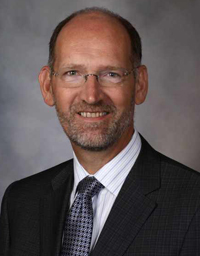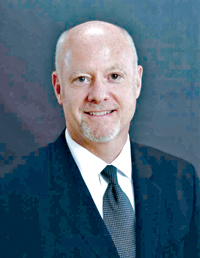Healthcare industry cheers meaningful use modifications

Finally, CMS has acknowledged a months-long chorus of frustration from industry groups that existing meaningful use rules are just too onerous. One typical reaction: "Hip, hip hooray!"
[See also: CMS signals an ease to meaningful use reporting]
Ever since the Department of Health and Human Services published its Aug. 29 final rule for Stage 2 meaningful use, which touted ostensible "flexibility" for hospitals and physicians but held fast on a 365-day reporting period, industry groups have been raising the cry that relief – especially a shorter, 90-day window – was necessary to keep the program moving forward.
 "The very future of meaningful use is in question," wrote CHIME CEO Russell Branzell in a September letter to HHS Secretary Sylvia Mathews Burwell, co-signed by a who's-who of healthcare industry groups including HIMSS, MGMA, AHA, AMA and others.
"The very future of meaningful use is in question," wrote CHIME CEO Russell Branzell in a September letter to HHS Secretary Sylvia Mathews Burwell, co-signed by a who's-who of healthcare industry groups including HIMSS, MGMA, AHA, AMA and others.
[See also: Calls for Stage 2 changes grow louder]
The continued existence of the EHR incentive program "hinges on addressing the 2015 reporting period requirements," according to the letter.
Now, with the news of CMS' "intent to engage in rulemaking" meant to "reduce the reporting burden on providers" – most notably its consideration of proposals that would, among other flexibility, shorten the 2015 EHR reporting period to three months – the industry's mood has improved markedly.
As Branzell tweeted on Thursday: "CMS Blog announced 2015 MU changes to 90 day reporting period. Yahoo!!!!!!!"
CHIME's official statement applauded CMS for "recognizing the pressing need to bring immediate flexibility to the meaningful use program in 2015.
 "Our members have been steadfast advocates for the value of a 90-day reporting period to foster interoperability and improve care coordination through broad program participation and EHR optimization," it reads. "We are pleased that CMS has announced their intent to make a number of changes to the program – in addition to a shortened reporting period – to reduce complexity and lessen providers’ reporting burden."
"Our members have been steadfast advocates for the value of a 90-day reporting period to foster interoperability and improve care coordination through broad program participation and EHR optimization," it reads. "We are pleased that CMS has announced their intent to make a number of changes to the program – in addition to a shortened reporting period – to reduce complexity and lessen providers’ reporting burden."
The response from the chief information officers CHIME represents was just as sunny.
"My reaction is very positive," Sue Schade, CIO at University of Michigan Hospitals and Health Centers, who was recently named the 2014 John E. Gall Jr. CIO of the Year, told Healthcare IT News.
"I think it's going to benefit organizations in different ways depending on where they are in the meaningful use cycle and adoption," said Schade. "Overall, I think it reflects that the voices of CIOs and others in the industry are being heard in terms of some of the adjustments that are needed to the timing and the regulations at this point. I share with my colleagues who were quite happy yesterday with that announcement. It reinforces that we need to never give up. We need to have a voice."
 Cris Ross, chief information officer of the Mayo Clinic, also said CMS' willingness to budge was "good news." The added flexibility, he said, "will allow provider and hospital organizations to accurately depict their compliance with meaningful use with less administrative overhead.
Cris Ross, chief information officer of the Mayo Clinic, also said CMS' willingness to budge was "good news." The added flexibility, he said, "will allow provider and hospital organizations to accurately depict their compliance with meaningful use with less administrative overhead.
[See also: Mayo Clinic moves to Epic]
"Making meaningful use more easily to attest to is a good thing," said Ross. "Especially since it seems like that approach doesn't create risk of inappropriate reporting, and those kinds of things. I think it's good news for our industry."
George Hickman, executive vice president and chief information officer for Albany Medical Center, said that this "will make a difference at Albany Med – and across our colleagues in the industry – in that our energies, beyond reporting, can be directed to so many other important and competing initiatives that support our missions and the people we serve."

"I am pleased with the changes CMS has announced with the meaningful use program, and I believe this is a good step forward towards allowing health care organizations to focus resources on delivering the best possible patient care," said Lee Carmen, CIO of the University of Iowa Health Care.
Industry groups were just as pleased.
"The Medical Group Management Association is encouraged by the announcement," said Anders Gilberg, senior vice president, government affairs of MGMA, in a statement – adding that the group urges CMS "to expedite the release of its 90-day reporting provision to give physician practices the confidence they need to continue participating in this program. The number of eligible professionals successfully attesting for Stage 2 of the program in 2014 were sharply down from those attesting for Stage 1, making significant changes to meaningful use essential."
“We hope the new rule will be issued expediently to provide the flexibility needed to allow more physicians to successfully participate in the meaningful use program and better align meaningful use with other quality reporting programs such as the Physician Quality Reporting System and the value-base modifier,” said American Medical Association President-Elect Steven J. Stack, MD, in a statement.
And Rep. Renee Ellmers (R-N.C.), who had been one of the staunchest proponents of a shorter attestation period on Capitol Hill – and who earlier this month had reintroduced her Flex-IT Act, which called for such a change, saying it was "hard to comprehend how HHS can move forward to full-year reporting when the numbers for 90-day reporting are so low," seemed vindicated.
[See also: Bill to fix 'unmanageable' meaningful use reintroduced]
"I’ve heard the pleas from physicians, hospitals, and healthcare providers in North Carolina, and I am relieved to see CMS addressing the need for a 90-day reporting period in 2015," she said. "The additional time and flexibility afforded by these modifications will help hundreds of thousands of providers meet Stage 2 requirements in an effective and safe manner."
Healthcare IT News Editor-at-Large Bernie Monegain contributed to this story.
























